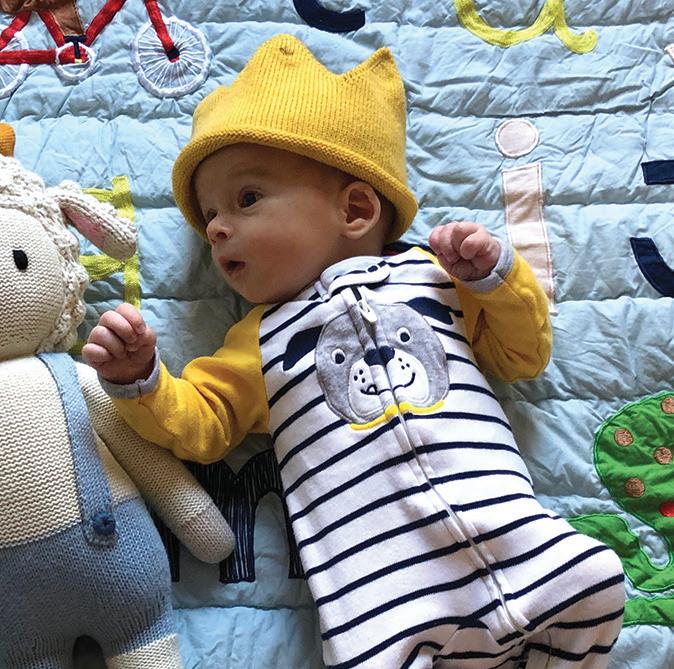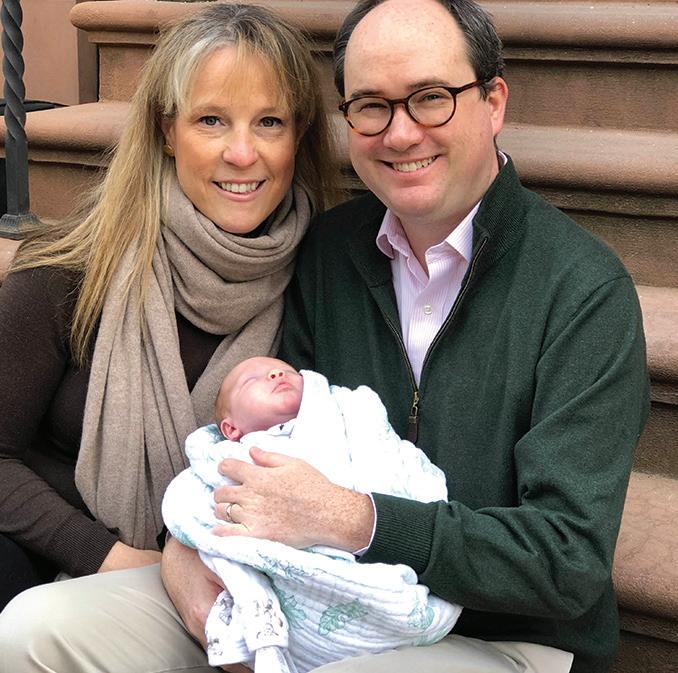
12 minute read
Spotlight on the Brearley Library
Chaucer! Rabelais! Balzac!
At the Circulation Desk with Barbara Hunting Bean ’66, Katie Doherty ’69, Danielle Lewis ’87, Karen Nathan ’75 and Brearley Library Head Celia Dillon
What is your position and how long have you held it? BB: I worked as a reference librarian at the Michigan State University College of Law in East Lansing for 14 years. Librarianship was my second career. I had previously been an attorney, and this was the only library job I held.
KD: I worked as Director of Learning Resources at White Mountains Community College (NH) for 25 years.
DL: Middle School Librarian at the United Nations International School (UNIS) in New York since 2015.
KN: Private librarian for a rare book collector for the past 23 years.
CD: Brearley Lower School Librarian for almost five years, and Head of the Library Department since last fall.
How long have you been working in the library profession? KD: 40+ years.
DL: 10 years, plus I was a library aide in college and graduate school and co-created a bilingual library on a kibbutz in the early 1990s.
KN: 38 years.
CD: Six years. I also took on some librarian responsibilities at the school where I was teaching while I was in Library Science school. Do you credit your time at Brearley as influencing your choice of profession? BB: Yes and no. Growing up three doors down from a library, I went there with my mother as soon as I could walk. At Brearley, Mrs. Roudebush was a terrific LS librarian; how else would I have discovered Australia? I think I was in Class VIII when Kitty Cunningham arrived; our class, which had rather a bad reputation, was admonished to be “nice” to her, because she might be reluctant to shush us vigorously. Kitty was one of the kindest people I have ever met and remains a dear friend to this day.
KD: Absolutely. The MS and US libraries were favorite places. I adored Mrs. Cunningham; she was a wonderful role model—so supportive, friendly and smart—even though she threw me out of the library one day for being too noisy!
DL: Absolutely. The Brearley library showed me what a library needs to be: full of delights waiting to be discovered, knowledgeable, helpful staff who treasured books and students, a sanctuary, and with an inviting touch of whimsy.
Favorite classes at Brearley? BB: Science (chemistry and biology) and Math. I also loved Class VI English.
KD: English and History; Carpentry in Class VI.
DL: Shakespeare with Mrs. Carpenter; History, both with Mrs. Lipton and Mr. Harrison; French Literature with Mme. Schmemann; Biology with Ms. Nedbal.
KN: Biology and Math.
How has technology changed the operation of libraries? BB: I was educated in an entirely print world for research. Part of the challenge for me in library school was learning how to do research in an online environment. Research involved using floppy disks, and by the time I graduated, those had been replaced by thumb drives, then the cloud and things keep evolving. Although initially daunting, the learning curve for new technologies is not that steep and soon it becomes difficult to remember “what we did before.” Document preservation in a digital world is a huge challenge. There is no way I can retrieve papers I wrote in library school which are saved on those little disks I can no longer access. Of course, if I have kept a print copy, that old-fashioned software lasts forever.
KD: Technology has played a huge role—and mostly for the better. Remember going through the Readers’ Guide to Periodical Literature volume by volume? Now, having the various online periodical indices such as EBSCOhost makes it so much easier and faster to do research. Also, using an online catalog is way easier than the old card catalog and can be done remotely.
DL: With the social fabric fraying in the US, libraries are stepping up more and more as social service agencies while bridging the digital divide. Technology has disrupted the operation of libraries in a positive way by helping library professionals reevaluate and reflect upon what a library can now do to maintain its timeless mission of service, knowledge and wonder. The Internet itself has democratized information access to a great extent, but it can also stoke misinformation, confirmation bias and hatred.
KN: Technology has made my job much easier in that one can find what used to be “rare” books much more easily, and there are now a vast number of bibliographical resources available online. I’ve worked mainly from home for many years, something that I couldn’t do without the Internet.
CD: Wholeheartedly I think it has improved the operation of libraries and increased the ability to provide access to information tenfold. Anyone who has a public library card can now access at no cost to the user JSTOR and other databases that were previously only accessible to those in an academic setting. Platforms like OverDrive have made ebooks and audiobooks accessible, again at no cost. And under our current stay-at-home directive, even though physical library spaces are closed, that so much is still available to our students and to students and adults across New York City through our library systems feels like a miracle. Why do you think it is important that libraries continue to exist as physical entities? BB: It feels somewhat strange to be addressing this question in the middle of this pandemic when physical libraries are closed to public access. At MSU, even if research could be conducted online, the libraries were gathering places for students to study and spend time in each other’s company. I suspect that the luxury of being in the company of other people will be much appreciated when this lockdown finally lifts.
DL: The coronavirus crisis has only confirmed what educators already know: people need and want to learn face to face. The library’s physical form will continue to evolve, but it will remain the physical embodiment of humanity’s quest for knowledge and wisdom.
CD: Especially for students, there’s immense value in the tactile experience of reading a print book, so the need for a physical space to house these books remains. Libraries are also community spaces, and they help fill in the digital divide by providing access to computers and the Internet.
What are some qualities needed to develop a career in library science today? BB: Curiosity. The ability to react and adapt to new ways of accessing knowledge, and being willing to adjust as new ways come along.
KD: Good computer and communication skills; being slightly “rescue-addicted” helps as well.
DL: “Future readiness”; cultural literacy and tech expertise; maintaining continuity with the past.
CD: Patience and warmth. A smile and a positive attitude are also key.
Libraries allow direct contact to happen, whether through ESOL class, drag queen story hour, a film series or a computer skills workshop.—Danielle
To get a feel for what the rare book world is like, I highly recommend the new documentary The Booksellers. We can always use more women in the business! —Karen
What are some highlights of your career thus far? BB: Working with law students; teaching law school courses in basic and advanced legal research; working with faculty members on their research projects; developing an expertise in digging out obscure documents in ancient federal and state legislative histories; designing complicated databases used in empirical research projects; serving as lead editor for international legal resources database for the American Society of International Law. KD: Working as a librarian/media specialist in the Zuni Pueblo schools and in a community college library.
DL: Helping Fulbright scholars who are non-native English speakers master academic research skills; winning a challenge grant to transform a library into a global learning commons; creating a middle school library squad; collaborating with colleagues on interdisciplinary research units in humanities, health and music; each time I connect with a student about reading, learning, language or their other passions.
KN: Getting to handle first editions printed by, and original letters written by, Benjamin Franklin, as part of the collection which I curate.
CD: When a patron tells me I understand her as a reader; a teacher comes to be a collaborative partner; a student gives me a very vague description of a book that was recommended to her and I am able to find what she is looking for; when I see a student independently applying a research strategy I taught during a class visit. What advice would you give a student considering library science as a career? BB: Go for it. It’s a big profession that offers different opportunities and challenges. in my 14 years as a librarian, never once did I not look forward to getting to the office.
KD: Get a bachelor’s degree in a topic you have a passion for and then consider going for a master’s in library and information science.
DL: Think service and think global. Read across genres and disciplines. Learn about other people, cultures, traditions, literacies and points of view. Make sure you are able to do the work of diversity and inclusion in a library and can promote equity for your users. Love to learn because you will never stop.
KN: If interested in rare books, try to find an internship or summer job in either an antiquarian bookshop (now sadly few and far between) or at an auction house in its rare book department.
CD: Go for it! Often I have to downplay to people how great being a school librarian is, because I don’t want them to feel bad, but it truly is the best job ever.
What are some challenges libraries and library professionals face today? BB: Google. Students, and even faculty researchers, can find so much information by searching it that they don’t always stop to question whether it is the best information, or just the top result as determined by the search engine algorithm. During my time in the law school library, the quantity of student and faculty requests declined, with searchers becoming more adept at using the technology to do their own research. When I started working, more of the faculty members really needed our help; over time, younger faculty became quite comfortable at doing their own research. One upside of this was that questions that came to me were really challenging.
KD: It somewhat saddens me that so many people don’t see the need for libraries and librarians these days because “I can get all I need using Google.” The last years in my job I spent a lot of time with various classes at the college explaining why students should use the library’s print and online resources. Also, these days many school and college administrators undervalue the role of the library and its staff.
DL: The flood of technology makes everyone feel that they are an expert, so libraries must no longer be needed. Numerous studies show that the presence of a qualified school librarian raises test scores, promotes civic literacy and democracy, and helps students find greater personal and professional success. There is a persistent stereotype that librarians are rigid fossils who read all day, stamp books and only like people who are silent. Imagine the shock of a librarian who designs information pathways for multinational corporations, helps teens create online manga and/or has multiple tattoos!
CD: Because of Google and Wikipedia, information is so publicly accessible now, and I think some people perceive that to mean we don’t need librarians anymore. However, this has actually shown we need librarians now more than ever! It’s easy to feel inundated with information, and we can really help our patrons by giving them tools to find what’s reliable, accurate and useful to their specific information needs.
Check out some of our favorite reads:
BB: Edith Hamilton’s Mythology, which we read in 6th grade. Also, Gone with the Wind (Middle School obsession), The Secret History, A Fine Balance and Diary of a Mad Housewife. of a Mad Housewife (Sue Kaufman).
KD: Shakespeare’s plays, which I read every year. Confession: I read The Secret Garden every year for a long time.
DL: Brearley: Pride and Prejudice, L’étranger, Ethan Frome, Vanity Fair, pretty much every Keats poem in Class XI’s Romantic Poetry, Macbeth and Hamlet. Of late: the Broken Earth trilogy and Mark Twain. Perpetual favorite: SPQR.
KN: Brearley: King Lear and Donne’s poetry (with eternal thanks to Ms. Schieffelin). All-time: Bleak House, Gilead and Good Omens. Of late: Let the Great World Spin, The Yellow Birds and Between the World and Me.
CD: Catch-22, The Luminaries and Pachinko come to mind. Some favorites to share with students: Officer Buckle and Gloria; Yours Sincerely, Giraffe; Stella Diaz Has Something to Say.)Diaz Has Something to Say by Angela Dominguez and Yours Sincerely, Giraffe by Megumi Iwasa.
Most popular books taken out of Brearley’s libraries in March:
Lower School: Claudia and Mean Janie
Middle School: Spy School Goes South
BIRTHS
1998
1999
1999
2001
2003
2003
2004
2004
2004
2007
2007
2007 To ANNIE TROWBRIDGE and Duncan Sinclair, a son, Jackson Rutherford Rhodes Sinclair1
To ELIZABETH VADASDI and Price Simmons, a daughter, Katherine Harper
To MEREDITH ANGELSON and Nathaniel Rich, a son, Julian Roth Angelson Rich
To SASHA KAYE WALSH and Robert Walsh, a daughter, Molly Eloise Kaye-Walsh2
To ARIELLE LYON LANGER and Nathaniel Langer, a son, Thomas Cunningham Langer3
To LILLIAN MEREDITH and Abel McDonnell, a son, Charles Alan Meredith McDonnell4
To ALY GIBSON and Matt Marcucci, a daughter, Filippa Helena Marcucci5
To ANA LIANG and Tim Howes, twin sons, Mark Alan Howes and Oliver Rhys Howes
To CHARLOTTE SAVINO and Lee Norton, a daughter, Daria Rose Norton6
To CATE MILLER GOLDSTEIN and Dave Goldstein, a daughter, Abigail Shelby Goldstein7
To CHRISTINA ARGUETA BERKOW and Stan Berkow, a son, Miles William Berkow8
To LÍADAN DONNELLY and Aaron Plavnick, a son, Maxwell Jeffrey Donnelly Plavnick9
1

4
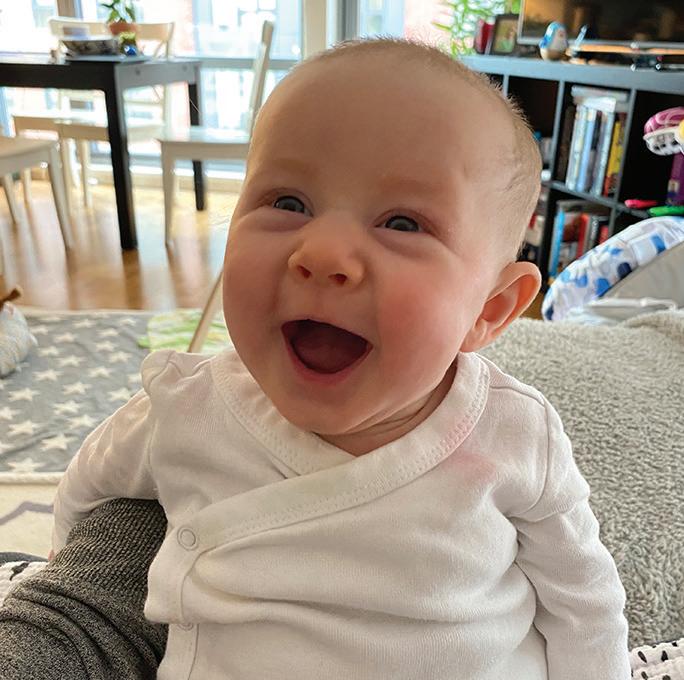
7 2
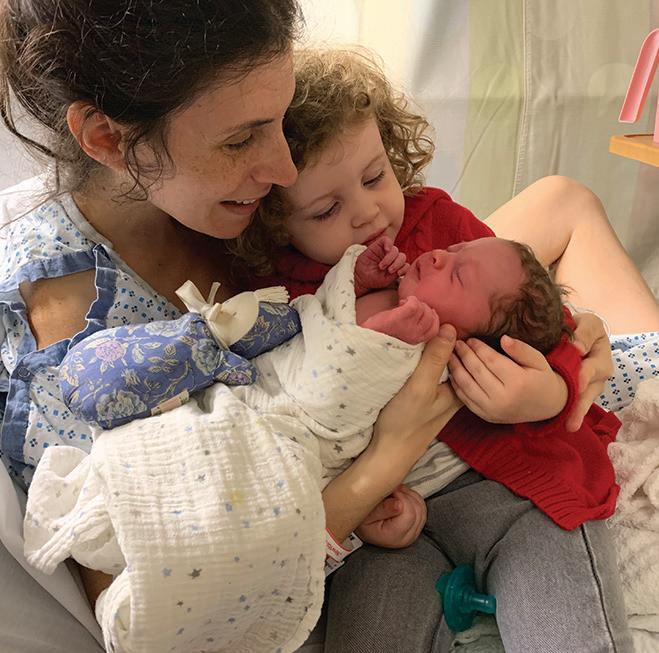
5
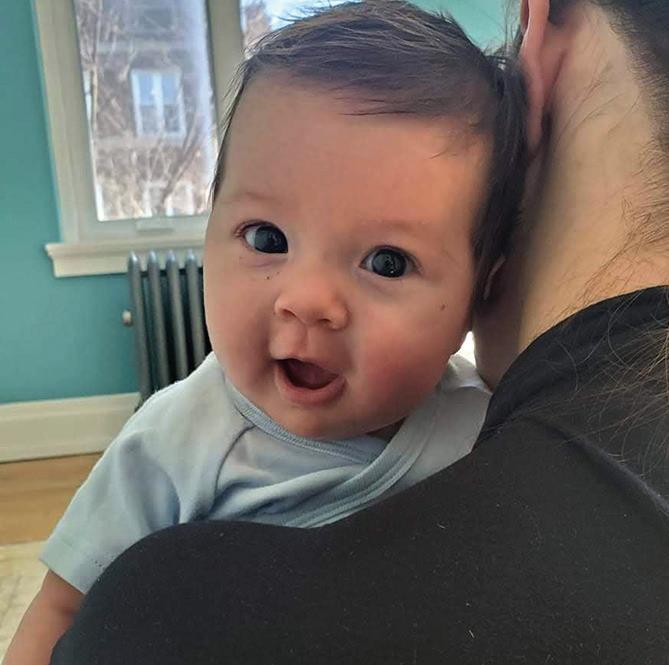
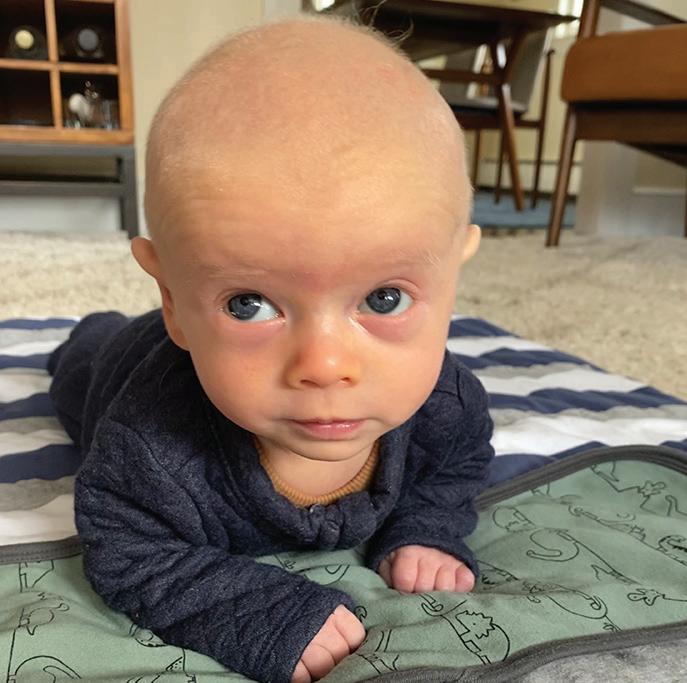
8 3
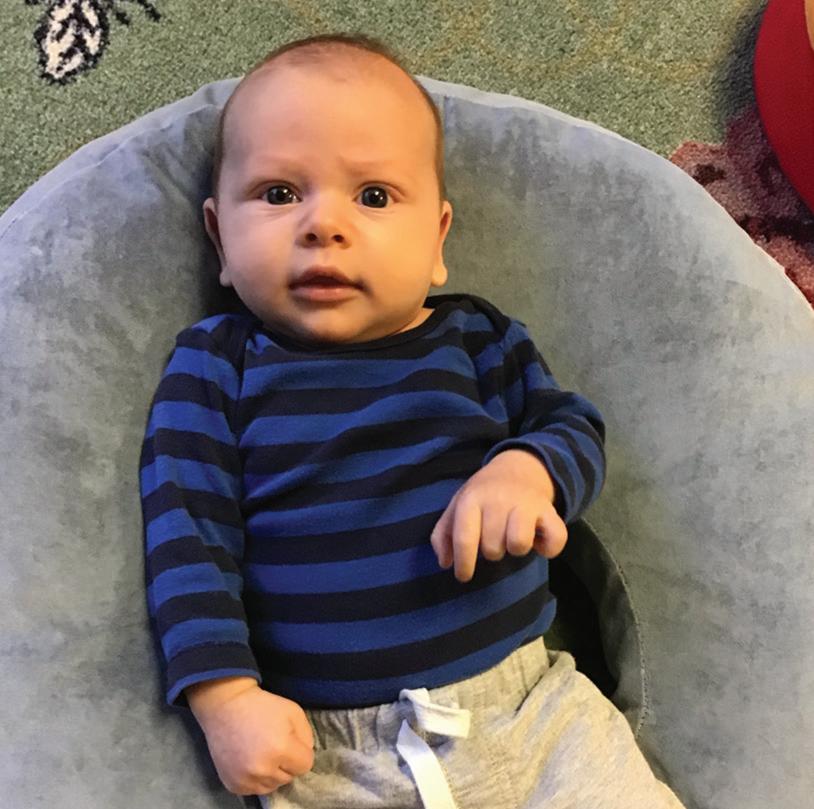
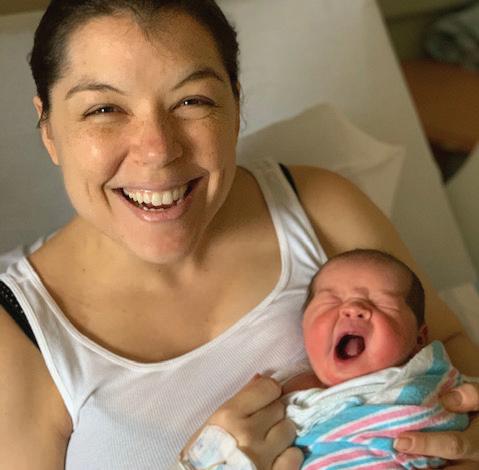
6
